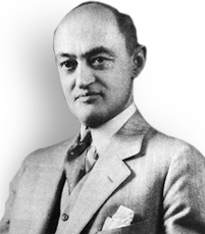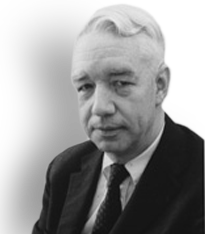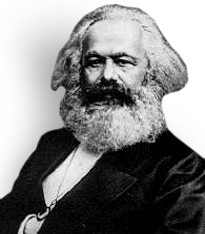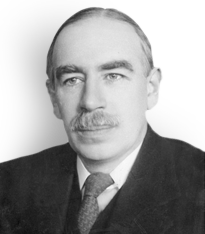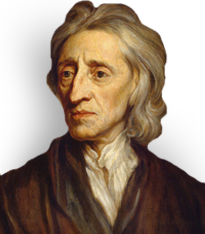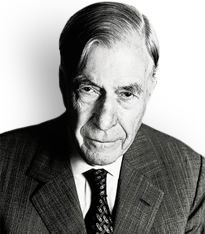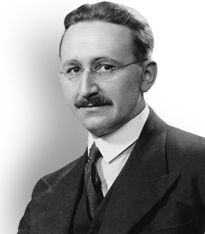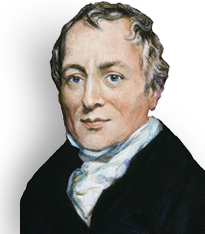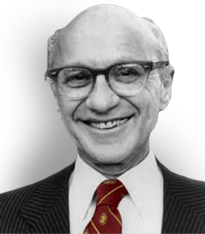John Locke was an English philosopher and physician is regarded as one of the most influential of Enlightenment thinkers. Locke's theory of value and property covers a wide range of human interests and aspirations; more narrowly, it refers to material goods. Locke argues that property is a natural right and it is derived from labour. In Chapter V of his Second Treatise, Locke argues that the individual ownership of goods and property is justified by the labour exerted to produce those goods or utilise property to produce goods beneficial to human society. Locke asserts that nature on its own provides little of value to society; he provides the implication that the labour expended in the creation of goods gives them their value. This is used as supporting evidence for the interpretation of Locke's labour theory of property as a labour theory of value, in his implication that goods produced by nature are of little value, unless combined with labour in their production and that labour is what gives goods their value. Locke believed that ownership of property is created by the application of labour. In addition, he believed property precedes government and government cannot "dispose of the estates of the subjects arbitrarily." Karl Marx later critiqued Locke's theory of property in his own social theory.Locke's general theory of value and price is a supply and demand theory, which was set out in a letter to a Member of Parliament in 1691, titled Some Considerations on the Consequences of the Lowering of Interest and the Raising of the Value of Money. He refers to supply as "quantity" and demand as "rent". "The price of any commodity rises or falls by the proportion of the number of buyer and sellers." and "that which regulates the price... [of goods] is nothing else but their quantity in proportion to their rent." The quantity theory of money forms a special case of this general theory. His idea is based on "money answers all things" (Ecclesiastes) or "rent of money is always sufficient, or more than enough," and "varies very little..." Locke concludes that as far as money is concerned, the demand is exclusively regulated by its quantity, regardless of whether the demand for money is unlimited or constant. He also investigates the determinants of demand and supply. For supply, he explains the value of goods as based on their scarcity and ability to be exchanged and consumed. He explains demand for goods as based on their ability to yield a flow of income. Locke develops an early theory of capitalisation, such as land, which has value because "by its constant production of saleable commodities it brings in a certain yearly income." He considers the demand for money as almost the same as demand for goods or land; it depends on whether money is wanted as medium of exchange or as loanable funds. As a medium of exchange, he states that "money is capable by exchange to procure us the necessaries or conveniences of life," and for loanable funds, "it comes to be of the same nature with land by yielding a certain yearly income... or interest."Locke distinguishes two functions of money, as a "counter" to measure value, and as a "pledge" to lay claim to goods. He believes that silver and gold, as opposed to paper money, are the appropriate currency for international transactions. Silver and gold, he says, are treated to have equal value by all of humanity and can thus be treated as a pledge by anyone, while the value of paper money is only valid under the government which issues it. Locke argues that a country should seek a favourable balance of trade, lest it fall behind other countries and suffer a loss in its trade. Since the world money stock grows constantly, a country must constantly seek to enlarge its own stock. Locke develops his theory of foreign exchanges, in addition to commodity movements, there are also movements in country stock of money, and movements of capital determine exchange rates. He considers the latter less significant and less volatile than commodity movements. As for a country's money stock, if it is large relative to that of other countries, he says it will cause the country's exchange to rise above par, as an export balance would do. He also prepares estimates of the cash requirements for different economic groups (landholders, labourers and brokers). In each group he posits that the cash requirements are closely related to the length of the pay period. He argues the brokers – middlemen – whose activities enlarge the monetary circuit and whose profits eat into the earnings of labourers and landholders, have a negative influence on both personal and the public economy to which they supposedly contribute. This intellectual foundation in economics is laid almost a century before Adam Smith's Wealth of Nations and is only a narrow swatch of Locke's many interests.
John Kenneth Galbraith was a Canadian and, later, American economist, public official, and diplomat, and a leading proponent of 20th-century American liberalism. Galbraith was the most widely read economist of the twentieth century who published 46 books that together sold more than 7 million copies (before his death in 2006) despite none being a textbook. He was a Keynesian, an institutionalist and a Harvard economics professor for half a century. Among his most famous works was a popular trilogy on economics, American Capitalism (1952), The Affluent Society (1958), and The New Industrial State (1967). Galbraith was active in Democratic Party politics, serving in the administrations of Franklin D. Roosevelt, Harry S. Truman, John F. Kennedy, and Lyndon B. Johnson. He served as United States Ambassador to India under the Kennedy administration. His prodigious literary output and outspokenness made him, arguably, "the best-known economist in the world" during his lifetime. Galbraith was one of few recipients both of the Medal of Freedom (1946) and the Presidential Medal of Freedom (2000) for his public service and contribution to science. The government of France made him a Commandeur de la Légiond'honneur.Rejecting the standard economic theory based on small, anonymous households and firms that autonomously engage in perfectly functioning markets, Ken instead saw an economic stage dominated by large, nameable actors: big business, big labor, big government. Sorting out their roles and respective power was central to his analysis, and the continually shifting tensions in the interplay among them—"countervailing power" in another of his deft phrases—was the real story of how an economy behaved.In A Short History of Financial Euphoria (1994), he traces speculative bubbles through several centuries, and argues that they are inherent in the free market system because of "mass psychology" and the "vested interest in error that accompanies speculative euphoria." Also, financial memory is "notoriously short": what currently seems to be a "new financial instrument" is inevitably nothing of the sort. Galbraith cautions: "The world of finance hails the invention of the wheel over and over again, often in a slightly more unstable version." Crucial to his analysis is the assertion that the common factor in boom-and-bust is the creation of debt to finance speculation, which "becomes dangerously out of scale in relation to the underlying means of payment." The financial crisis of 2008, which took many economists by surprise, seemed to confirm many of Galbraith's theses.The central importance of the corporation, and the fear that government was no longer able to provide an adequate countervailing force against corporate influence exerted both legally and otherwise, was the subject of his last book, The Economics of Innocent Fraud (2004).
Friedrich Hayek was an Austrian and later British economist and philosopher best known for his defense of classical liberalism. Hayek shared the Nobel Memorial Prize in Economic Sciences (with Gunnar Myrdal) for his "pioneering work in the theory of money and economic fluctuations and penetrating analysis of the interdependence of economic, social and institutional phenomena." If any twentieth-century economist was a Renaissance man, it was Friedrich Hayek. He made fundamental contributions in political theory, psychology, and economics. Hayek was the best-known advocate of what is now called Austrian economics. He was, in fact, the only major recent member of the Austrian school who was actually born and raised in Austria. After World War I, Hayek earned his doctorates in law and political science at the University of Vienna. Afterward he, together with other young economists Gottfried Haberler, Fritz Machlup, and Oskar Morgenstern, joined Ludwig von Mises's private seminar—the Austrian equivalent of John Maynard Keynes's "Cambridge Circus." In 1927 Hayek became the director of the newly formed Austrian Institute for Business Cycle Research. In the early 1930s, at the invitation of Lionel Robbins, he moved to the faculty of the London School of Economics, where he stayed for eighteen years. He became a British citizen in 1938. Most of Hayek's work from the 1920s through the 1930s was in the Austrian theory of business cycles, capital theory, and monetary theory. Hayek saw a connection among all three. The major problem for any economy, he argued, is how people's actions are coordinated. He noticed, as Adam Smith had, that the price system—free markets—did a remarkable job of coordinating people's actions, even though that coordination was not part of anyone's intent. The market, said Hayek, was a spontaneous order. By spontaneous Hayek meant unplanned—the market was not designed by anyone but evolved slowly as the result of human actions. But the market does not work perfectly. What causes the market, asked Hayek, to fail to coordinate people's plans, so that at times large numbers of people are unemployed? One cause, he said, was increases in the money supply by the central bank. Such increases, he argued in Prices and Production, would drive down interest rates, making credit artificially cheap. Businessmen would then make capital investments that they would not have made had they understood that they were getting a distorted price signal from the credit market. But capital investments are not homogeneous. Long-term investments are more sensitive to interest rates than short-term ones, just as long-term bonds are more interest-sensitive than treasury bills. Therefore, he concluded, artificially low interest rates not only cause investment to be artificially high, but also cause "malinvestment"—too much investment in long-term projects relative to short-term ones, and the boom turns into a bust. Hayek saw the bust as a healthy and necessary readjustment. The way to avoid the busts, he argued, is to avoid the booms that cause them.In 1950, Hayek left the London School of Economics for the University of Chicago, where he became a professor in the Committee on Social Thought. Senior university officials at Chicago wanted the Economics Department to hire him but they declined to do so. Hayek's friend Milton Friedman was highly critical of Hayek's economics writings, Prices and Production and his book on capital theory.[34] Hayek at the time was working in political theory, not economics, and was hostile to the positivist approach the Department embraced. Hayek had frequent contacts with some members of the Department of Economics, and his political views resembled those of many of the Chicago School activists. In terms of ideology, said Friedman, the majority of the Chicago economics department "was on Hayek's side."[35] Hayek actively promoted Aaron Director, who was active in the Chicago School in helping to fund and establish what became the "Law and Society" program in the University of Chicago Law School.[36] Hayek, Frank Knight, Friedman and George Stigler worked together in forming the Mont Pèlerin Society, an international forum for libertarian economists. Hayek and Friedman cooperated in support of the Intercollegiate Society of Individualists, later renamed the Intercollegiate Studies Institute, an American student organization devoted to libertarian ideas. In political theory Hayek gave his view of the proper role of government in his book The Constitution of Liberty. It is actually a more expansive view of the proper role of government than many of his fellow classical liberals hold. He discussed the principles of freedom and based his policy proposals on those principles. His main objection to progressive taxation, for example, was not that it causes inefficiency but that it violates equality before the law. In the book's postscript, "Why I Am Not a Conservative," Hayek distinguished his classical liberalism from conservatism. Among his grounds for rejecting conservatism were that moral and religious ideals are not "proper objects of coercion" and that conservatism is hostile to internationalism and prone to a strident nationalism.In 1962 Hayek returned to Europe as professor of economic policy at the University of Freiburg in Breisgau, West Germany, and stayed there until 1968. He then taught at the University of Salzburg in Austria until his retirement nine years later. His publications slowed substantially in the early 1970s. In 1974 he shared the Nobel Prize with Gunnar Myrdal "for their pioneering work in the theory of money and economic fluctuations and for their penetrating analysis of the interdependence of economic, social and institutional phenomena." This award seemed to breathe new life into him, and he began publishing again, both in economics and in politics.Many people get more conservative as they age. Hayek became more radical. Although he had favored central banking for most of his life, in the 1970s he began advocating denationalizing money. Private enterprises that issued distinct currencies, he argued, would have an incentive to maintain their currency's purchasing power. Customers could choose from among competing currencies. Whether they would revert to a gold standard was a question that Hayek was too much of a believer in spontaneous order to predict. With the collapse of communism in Eastern Europe, some economic consultants have considered Hayek's currency system as a replacement for fixed-rate currencies. Hayek was still publishing at age eighty-nine. In his book The Fatal Conceit, he laid out some profound insights to explain the intellectuals' attraction to socialism and then refuted the basis for their beliefs.
David Ricardo was a British political economist. He was one of the most influential of the classical economists, along with Thomas Malthus, Adam Smith, and James Mill. He began his professional life as a broker and financial market speculator, amassing a considerable personal fortune, largely from financial market speculation and, having retired, bought a seat in the U.K. Parliament. He held his parliamentary seat for the last four years of his life. Perhaps his most important legacy is his theory of comparative advantage, which suggests that a nation should concentrate its resources solely in industries where it is most internationally competitive and trade with other countries to obtain products not produced nationally.Ricardo became interested in economics after reading Adam Smith's The Wealth of Nations in 1799. He wrote his first economics article at the age of 37. Ricardo's idea became accepted in England and have become orthodox economic ideas in the modern western world where government is seen as having a determining role in economic development. He was also an influential abolitionist, speaking at a meeting of the Court of the East India Company in March 1823, where he said he regarded slavery as stain on the character of the nation. Between 1500 and 1750 most economists advocated Mercantilism which promoted the idea of international trade for the purpose of gaining bullion by running a trade surplus with other countries. Ricardo challenged the idea that the purpose of trade was merely to accumulate gold or silver. With "comparative advantage" Ricardo argued in favor of industry specialization and free trade. He attempted to prove, using simple mathematics, that industry specialization combined with free international trade always produces positive results. This theory expanded on the concept of absolute advantage. Ricardo argued that there is mutual national benefit from trade even if one country is more competitive in every area than its trading counterpart and that a nation should concentrate resources only on industries where it had a comparative advantage, that is in those industries in which it has the greatest competitive edge. Ricardo suggested that national industries which were, in fact, profitable and internationally competitive should be jettisoned in favor of the most competitive industries. Ricardo's theory of comparative advantage assumes the existence of an industry and trade policy at a national level. It does not presume that business decisions are or should be made independently by entrepreneurs on the basis of viability or profit. Ricardo attempted to prove, using a simple numerical example, that international trade is always beneficial. Paul Samuelson called the numbers used in Ricardo's numerical example dealing with trade between England and Portugal the "four magic numbers". "In spite of the fact that the Portuguese could produce both cloth and wine with less amount of labor, Ricardo suggested that theoretically both countries benefit from trade with each other."
Milton Friedman was an American economist, statistician and writer who taught at the University of Chicago for more than three decades. He received the 1976 Nobel Memorial Prize in Economic Sciences for his research on consumption analysis, monetary history and theory and the complexity of stabilization policy. After retiring from the University of Chicago in 1977, Friedman became a senior research fellow at the Hoover Institution at Stanford University. He was the twentieth century's most prominent advocate of free markets.Friedman's challenges to what he later called "naive Keynesian" (as opposed to Neo-Keynesian) theory began with his 1950s reinterpretation of the consumption function, and he became the main advocate opposing Keynesian government policies.He theorized there existed a "natural" rate of unemployment and argued that governments could only increase employment above this rate, e.g., by increasing aggregate demand, only for as long as inflation was accelerating. He argued that the Phillips curve was, in the long run, vertical at the "natural rate" and predicted what would come to be known as stagflation. Though opposed to the existence of the Federal Reserve System, Friedman argued that, given that it does exist, a steady, small expansion of the money supply was the only wise policy. Friedman actively participated in public debates over numerous policy issues; he was a major advisor to Republican U.S. President Ronald Reagan and Conservative British Prime Minister Margaret Thatcher. His political philosophy extolled the virtues of a free market economic system with minimal intervention. He once stated that his role in eliminating U.S. conscription was his proudest accomplishment, and his support for school choice led him to found the Friedman Foundation for Educational Choice. In his 1962 book Capitalism and Freedom, Friedman advocated policies such as a volunteer military, freely floating exchange rates, abolition of medical licenses, a negative income tax, and school vouchers.Friedman was among the strongest proponents of positivism in the social sciences. In the field of statistics, Friedman developed the sequential sampling method of analysis. He was also a mentor of and collaborator with Leonard Jimmie Savage, laying the foundations of Bayesian statistics and decision theory. With George Stigler and others, Friedman was among the intellectual leaders of the second generation of Chicago price theory, a distinctive intellectual and methodological movement at the University of Chicago's Department of Economics, Law School, and Graduate School of Business from the 1940s onward. A large number of students and young professors that were recruited or mentored by Friedman during this period went on to become leading economists; they include Gary Becker, Robert Fogel, Ronald Coase, and Robert Lucas, Jr..

